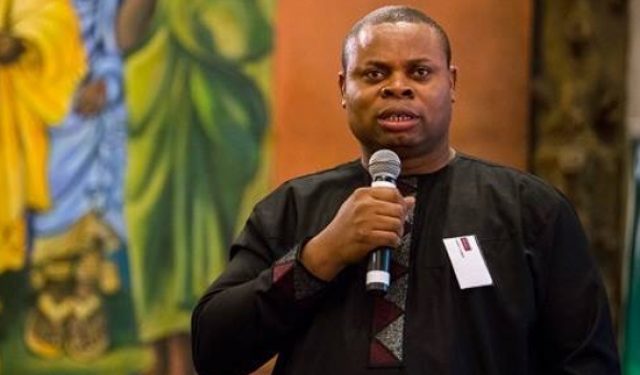In late 2023, Newmont, one of the world’s largest gold mining companies, announced its intention to divest certain mining assets to focus on “Tier 1” operations—those capable of producing at least 500,000 ounces of gold annually for at least 10 years. One of the major projects set for sale is the Akyem mine in Abirem, Ghana, with the sale timeline slated for completion by Q1 2025.
Recently, reports have indicated that the Akyem mine sale is in its final stages, with the successful bidder expected to be a Chinese entity. While Newmont has every right to sell to the highest bidder, the involvement of a foreign buyer has raised significant concerns, particularly given the government’s earlier commitments.
In his 2023 State of the Nation Address (SONA), President Nana Akufo-Addo made a clear promise to prioritize Ghanaian ownership in the potential sale of the mine. “We will engage with Newmont to give priority to Ghanaian investors who will want to acquire this mine to ensure that our mineral resources better benefit the Ghanaian people,” the President assured on pages 23 and 24 of his address.
However, that promise now appears unfulfilled. Several capable Ghanaian entities expressed interest in acquiring the mine, with backing from the Minerals Infrastructure and Investment Fund (MIIF), yet the sale has been finalized in favour of a foreign entity. This move raises troubling questions about the government’s commitment to ensuring local ownership and control over the country’s natural resources.
At a time when many African nations are fiercely protecting their mineral wealth by securing local investments, the decision to allow a foreign sale of the Akyem mine is perplexing. The mine has already produced over 420,000 ounces of gold, and its long-term potential remains vast. The opportunity to retain a majority Ghanaian stake in such a valuable resource has seemingly been squandered.
Moreover, Ghana is currently grappling with the ecological consequences of illegal small-scale mining (galamsey), yet the government is comfortable allowing a highly profitable and well-managed large-scale mining operation to fall into foreign hands. The loss of this golden opportunity is even more baffling given Ghana’s existing resources—MIIF, SSNIT, and other investment funds—that could have been used to secure local ownership. This could have boosted Ghana’s gold reserves, enhanced local refinery capabilities, and contributed to the nation’s economic growth.
Equally troubling is the government’s apparent lack of leverage in the negotiations. Newmont is not leaving Ghana entirely; its Ahafo mine remains classified as a “Tier 1” asset, with an expected operational lifespan of at least 20 more years. In fact, Newmont is investing $1.4 billion in its Ahafo North mine. Additionally, the company enjoys a tax regime that has saved it over $2 billion, a significant factor that could have been used to negotiate a deal that favoured Ghanaian interests. Newmont, with such substantial investments in Ghana, would have likely been open to an arrangement that met its financial valuation while maintaining good relations with the government.
IMANI believes this is a pivotal moment for Ghanaians to begin reaping the full benefits of the country’s mineral wealth. By pooling local capital, expertise, and resources, Ghana could have positioned itself to retain a majority stake in a top-tier mine. The Newmont Akyem mine sale offered a unique chance for the country to adopt best practices from a leading global mining entity, establish a circular local economy around gold, and ensure that the revenue stays within Ghana, instead of being repatriated abroad, as has been the case for more than a century.
To safeguard Ghana’s future and prevent further missed opportunities, IMANI demands the following:
1. Parliament must urgently investigate why the Akyem mine is being sold to a foreign entity, despite local interest.
2. An explanation is needed regarding why Ghanaian entities that bid on the mine did not receive presidential support.
3. The role of the Minister of Mines and Natural Resources in advising the President on this sale must be clarified.
4. The government must explain why it did not leverage its position to ensure that reputable Ghanaian agencies, including MIIF, participated in this lucrative deal.
Finally, President Nana Akufo-Addo must not let Ghana down when it comes to gold, a resource that has defined the nation for over 700 years. Fumbling both large- and small-scale gold issues could severely tarnish the President’s legacy, and history will judge him harshly if he fails to uphold his promise to the Ghanaian people.
The opportunity to secure local ownership of Ghana’s mineral wealth has once again been lost, and the consequences could echo through generations.
Latest Stories
-
Center for Learning and Childhood Development Director Dr Kwame Sakyi honoured at Ghana Philanthropy Awards
6 hours -
Asantehene receives 28 looted artefacts
7 hours -
CAF WCL 2024: Ghana’s Thelma Baffour wins title with TP Mazembe
8 hours -
Benjamin Boakye slams politicisation of energy sector issues and ECG’s inefficiencies
8 hours -
Erastus Asare Donkor and Dr Neta Parsram win big at 10th Mining Industry Awards
8 hours -
Government is “suppressing information” about power sector challenges – IES Director
8 hours -
Majority of our debts caused by forex shortfall – ECG Boss
9 hours -
Pan-African Savings and Loans supports Ghana Blind Union with boreholes
9 hours -
Bole-Bamboi MP Yussif Sulemana donates to artisans and Bole SHS
10 hours -
Top up your credit to avoid potential disruption – ECG to Nuri meter customers
10 hours -
Dutch & Co wins 2024 Entrepreneur of the Year Award
10 hours -
We’ll cut down imports and boost consumption of local rice and other products – Mahama
12 hours -
Prof Opoku-Agyemang donates to Tamale orphanage to mark her birthday
13 hours -
Don’t call re-painted old schools brand new infrastructure – Prof Opoku-Agyemang tells gov’t
14 hours -
Sunon Asogli plant will be back on stream in a few weeks – ECG
14 hours

